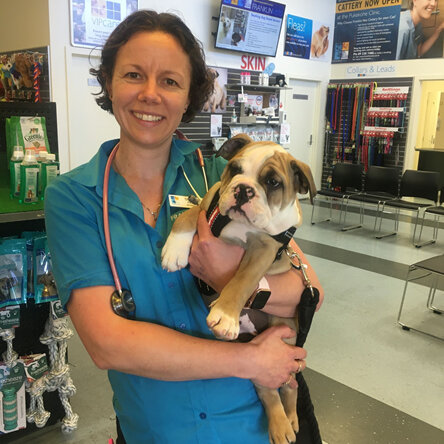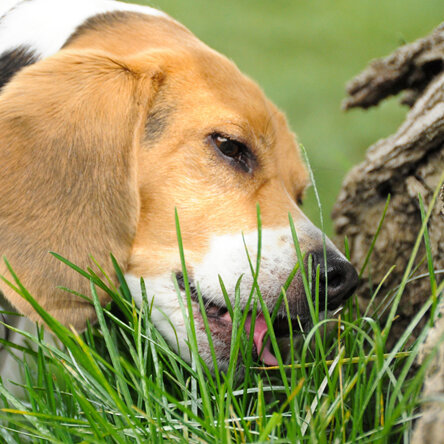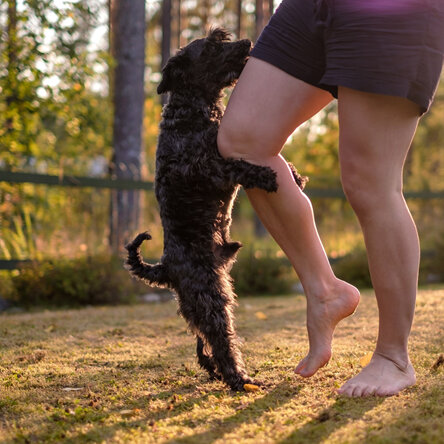Franklin Vets
Franklin Vets - excellence in veterinary care for dairy, farming, lifestyle, equine and household pets. BESTPRACTICE ACCREDITED NZ.

Nikki is a senior pet vet at our Pukekohe clinic and many of you will be familiar with her. She achieved Membership of the Australian & New Zealand College of Veterinary Scientists in the Medicine of Cats in 2018 and is excited to answer all your questions.
A: If your dog doesn’t have skin issues then generally they don’t need regular baths. Bathing them only when they get dirty or a few times a year with a dog-specific shampoo is fine to keep them smelling nice. Too frequent bathing (more than once a month) can strip the natural oils from the skin and coat and cause it to become dull, flakey and potentially itchy. If mud or dirt is an issue and you need to wash them frequently, you can always just wash your dog with water without using shampoo.
However, if your dog suffers from a skin condition, regular shampooing with a medicated shampoo, which is designed to be used more frequently, is often an important part of the control of skin disease. Your vet can recommend how frequently you should be bathing to help achieve control.
Never use human shampoo or soap on a dog as the pH of their skin is more acidic than ours so these products can cause skin irritation.

A: Dogs are scavengers by nature and test to eat a lot of things that we humans would never dream of feeding our dogs such as stones, sticks and yes, poo. A study showed that 23% of dogs ate poo.
One possible reason that your dog eats poo is simply that they enjoy it. Your dog’s sense of smell and taste are very different to ours and they may be able to detect undigested fats, proteins, or other materials that smell delicious to them. While we often explore things with our hands, dogs use their mouths to help them understand the world, and for your dog, eating poo may just be another way of examining something that seems interesting to them.
They also may be copying their mum as canine mothers eat their puppy’s faeces to keep them and the area hygienic and free from diseases and parasites. In the wild, this instinct may also help to prevent predators from being drawn to the smell of a dog’s den. A dog’s mum teaches them how to be a dog, so puppies will instinctively copy their mother’s behaviour. Most mothers stop cleaning up after their puppies when they have either moved on to solid foods or they can leave their den to do their business. Around this time, most puppies stop being so interested in poo, but some never seem to grow out of it.
Faeces can contain bacteria that can cause illness, mainly in the form of vomiting and diarrhea. It can also contain parasite eggs which can cause disease so keeping up with regular worming is important.

A: Humping is one of those behaviours that we often consider to be a bit strange because of our human sensibilities, but is in fact quite normal for dogs in a lot of circumstances. It can be a way to let off sexual frustrations or a way to release tension when they are feeling excited or anxious.
Sometimes a dog will go around humping the air as a form of playing, in dogs or puppies that aren’t good at socializing or have very few socialization skills, might be humping because they aren’t sure how to play. It can also be part of dominant behaviour.
As there are a variety of reasons why your dog might start humping, it is important to observe the situation that your dog is in, and what kind of stimulus they are exposed to, to determine the motivation for their mounting behaviour.
The key to breaking your dog of this behaviour is to catch them in the act, or preferably when you can see that they are thinking about it and are about to start. At this moment, you need to call your dog’s attention away from what they are about to do with a command that they already understand, such as " sit,” “down,” or “stop.” If they respond quickly and appropriately, you can then reward them with some affection or a tasty treat.
If their humping seems to be a particular response to excitement, and therefore it is difficult to lower their energy levels once they have started, it is a good idea to engage in other forms of play. When you are entering a high-excitement situation in which you know that they have a tendency to hump, engage them in another fun, high-energy activity before they get started like a game of catch.
If the behaviour occurs when you come home, it can suggest that they may not be getting the physical and mental stimulation they need. Up their daily exercise, and be sure to leave them with appropriate puzzle toys so that they have something to stimulate their minds or send them to doggy daycare so they are not alone for the day.
If your dog suddenly develops humping behaviour, and especially if they seem to hump the air spontaneously and not in response to anything, this can be a sign that your pup is dealing with stress and anxiety. Mounting is a way for them to release the tension that has built up in their body. When this is the case, you need to look at the underlying cause of their stress. If you can't eliminate the cause of the stress then supplements like Calmex or the Royal Canin Calm diet are ways to reduce anxiety naturally.